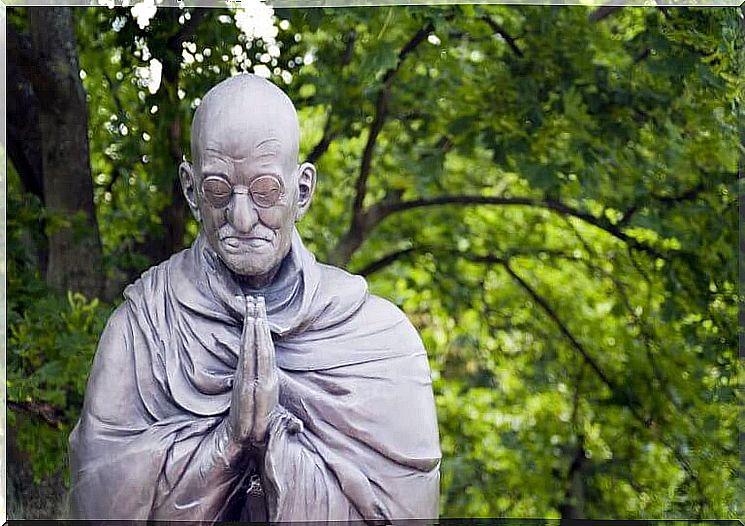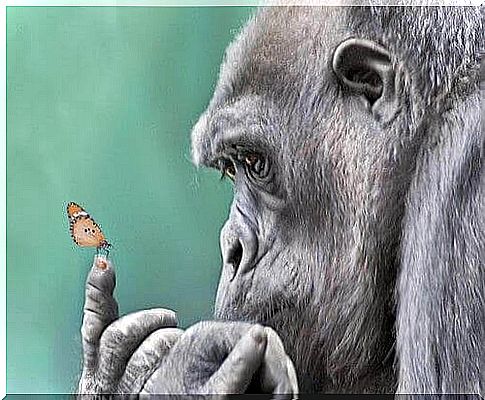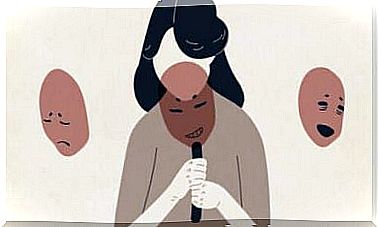How, According To Gandhi, We Can Triumph In A Discussion

Mahatma Gandhi experienced numerous stories and anecdotes that brought him great wisdom and taught him how to triumph in a discussion without resorting to violence. Gandhi achieved great renown and went down in history as the man who waged nonviolent war.
It is said, for example, that he once sat down to eat with a professor at the University of London (England, United Kingdom). The professor asked him to sit down somewhere else because “birds and pigs can’t eat together.” Gandhi stood up and replied, “Don’t worry, Professor, I’ll fly away.”
“The goal of any dispute shouldn’t be victory, but progress.”
Joseph Joubert
Gandhi almost always emerged as the winner of his discussions. But he always behaved so intelligently and was so gracious that his discussion partner finally felt that something good had happened to him. The reason for this was probably that Gandhi’s primary goal was to learn something from the situation, much more than to triumph in the discussion.
For this reason, today we would like to take a closer look at his methods and learn how to triumph in a discussion without hurting anyone.
Don’t be selfish and argue sensibly
For Gandhi, the perspective of the discussion partner had to be considered in every aspect of a problem. For example, he ensured the end of the monopoly of the English textile industry and then visited every single factory to apologize for the layoffs he was responsible for.

He also excelled in carefully thinking through each topic. He was not satisfied with a superficial picture of the world. He read, obtained detailed information and looked up the unknown. All of this enabled him to form an educated opinion on the subject. That is certainly a key factor in order to be well prepared for a discussion.
Train your physical strength and be patient
He was convinced that the strength of the body contributed decisively to mental strength. Gandhi was known for striving to be in good physical shape, which enabled him to weather difficult moments with an amazing resilience. A trained body brings calm, a stronger will and self-control.
Patience, on the other hand, requires a trained mind. Gandhi said that a wall had to be built brick by brick and that each brick had its own time in which to lay it on top of the next. Patience is evidence of mental strength. Not giving in to the first impulse is the key to success, especially when confronted.
Be understanding and compassionate
Gandhi publicly proclaimed opinions that reached everyone. Its principles were not the product of a delineated or arbitrary vision. On the contrary: in his opinions and in his struggle he considered all of humanity. His doctrine initially focused on his own people, but he held universal values.

For this resistance fighter, feelings were very important. His conversations were not just ideological. He tried to understand the attitudes of his opponents and was considerate of their feelings. That is why hundreds of thousands of people in the world followed him and they admired him even if they did not agree with him: Winning a discussion does not necessarily mean degrading your counterpart.
Use understandable language and be open
Understandable language is characteristic of great leaders. They don’t speak to be admired, they speak to be understood. And the best way to promote understanding is by using understandable language that anyone can understand.
It would be populism if hidden interests were hidden behind it. But when simple words don’t hide hidden truths, they reach people’s hearts. An authentic and honest speech is convincing and creates respect in the other person, both on your own and on the other side. We win a verbal argument as follows: with solid arguments that are said in an understandable way and without lies.
Improve self-sufficiency and stamina
Gandhi insisted on making his own salt, clothing, and other items of everyday life. For him, self-sufficiency was a way of being free. He knew that dependencies don’t come from big things, but from small things. And so it came about that he fought against the root of all evil.
This great revolutionary fought for the independence of India, which was his great dream, for 55 years. He fought for it in his own way, without any violence. He suffered countless defeats before he got there. Yes, he even had conflicts with himself and learned how to triumph in a discussion. He knew deep down that perseverance was the key to opening any door, and that perseverance would lead to success.

Gandhi’s teachings are a precious legacy of human values. His triumph was a mental achievement, and that is why he made history. The greatest of his commandments was to face the problem, but without pursuing the goal of destroying the other. So everyone wins, even if not everyone gets what they initially imagined.
Images courtesy of Whooli Chen









